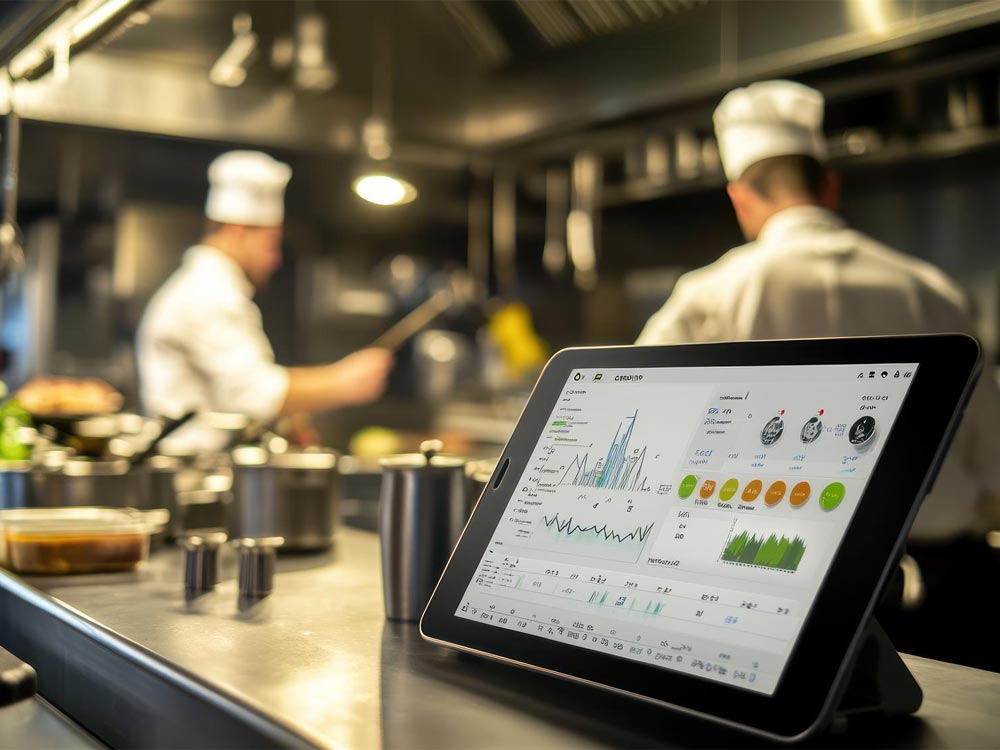What is Digital Disruption?
Digital disruption refers to the change that occurs when new digital technologies and business models affect the value proposition of existing goods and services. In logistics, this means adopting cutting-edge technologies that significantly improve efficiency, reduce costs, and enhance customer satisfaction.How Technology is Disrupting Logistics Automation.
- Automation in logistics covers a wide range of activities, from warehouse operations to delivery systems. Robots, drones, and automated vehicles are taking over manual tasks, speeding up processes and reducing the likelihood of human error.
- Robotic Process Automation (RPA) is used in supply chain management to automate routine administrative tasks like data entry and invoice processing.
- Warehouse automation involves using robots to move, pack, and store goods, reducing labor costs and improving order accuracy.
Artificial Intelligence (AI)
- AI enables smarter decision-making in logistics. Algorithms can analyze huge amounts of data to optimize routes, predict demand, and manage inventory levels.
- For instance, AI-powered route optimization can determine the most efficient path for delivery trucks based on traffic, weather conditions, and road closures, saving fuel and time.
- Demand forecasting is another key AI application, where historical data is used to predict future sales or shipping volumes, helping companies stock the right amount of inventory and avoid overstock or shortages.
The Internet of Things (IoT)
- IoT devices, such as sensors and GPS trackers, provide real-time visibility into the movement of goods. Sensors can monitor the location and condition of goods in transit, while GPS tracking ensures real-time tracking of vehicles.
- Fleet management benefits greatly from IoT, as companies can monitor vehicle performance, optimize maintenance schedules, and ensure better fuel efficiency.
Blockchain
- Blockchain technology adds transparency and security to the logistics process. It creates a digital ledger that records each transaction, shipment, or movement of goods in a secure and unalterable way.
- Blockchain can help prevent fraud by ensuring that data about the origin, handling, and movement of goods cannot be tampered with.
- This technology is especially valuable in industries where proof of origin, such as for pharmaceuticals or luxury goods, is essential.
Last-Mile Delivery Innovations
- The "last mile" refers to the final leg of delivery, from a distribution center to the customer's doorstep, which is often the most expensive and challenging part of the logistics chain.
- Drones and autonomous vehicles are now being explored to make last-mile deliveries faster and more cost-effective. Drones can deliver packages to remote or urban areas without the need for human labor.
- Autonomous delivery vehicles are another innovation that is gaining traction, particularly in urban areas.
Data Analytics and Predictive Maintenance
- Advanced data analytics allows logistics companies to analyze historical trends and real-time data to make more informed decisions. By identifying inefficiencies or bottlenecks in the supply chain, companies can improve operational efficiency.
- Predictive maintenance is a technology that uses machine learning algorithms to predict when equipment (such as trucks or machinery) is likely to fail, allowing companies to perform maintenance proactively and avoid costly downtime.
Key Benefits of Digital Disruption in Logistics
- Cost Efficiency: Automation, AI, and IoT reduce labor costs, optimize routes, and improve fleet management, leading to significant savings.
- Faster Deliveries: Optimized routes and last-mile delivery innovations speed up the time it takes to get goods from warehouse to customer.
- Improved Customer Satisfaction: Real-time tracking and faster deliveries improve the customer experience, making logistics companies more competitive.
- Transparency and Accountability: Blockchain and IoT provide greater visibility into the supply chain, ensuring better tracking and reducing the likelihood of theft or fraud.
- Sustainability: By optimizing routes and minimizing fuel consumption, companies can reduce their environmental impact, which is a growing concern for consumers and regulators.
Challenges of Implementing Digital Disruption in Logistics
- High Initial Costs: Implementing advanced technologies like AI, IoT, and blockchain requires significant investment in infrastructure, training, and software.
- Cybersecurity Risks: As logistics companies rely more on digital systems, they become more vulnerable to cyberattacks, and protecting sensitive data becomes a priority.
- Workforce Adaptation: Employees need to adapt to new technologies, and there is often resistance to change. This may require reskilling and upskilling the workforce.
- Regulatory Compliance: Technologies like drones and autonomous vehicles often face regulatory hurdles, and companies need to navigate complex legal frameworks before adopting them.
Key Technologies and Their Impact
- AI: Optimizes decision-making in route planning, demand forecasting, and inventory management. AI is transforming predictive analytics and improving the speed and accuracy of logistics.
- IoT: Provides real-time visibility across the supply chain, ensuring that logistics managers can track goods at all stages of transit, which improves operational efficiency.
- Blockchain: Enhances security and transparency, particularly in industries where provenance and tracking are crucial, such as pharmaceuticals, food, and luxury goods.
- Automation: Reduces manual work in warehouses and supply chains, improving efficiency, reducing costs, and speeding up order fulfillment.
- Drones and Autonomous Vehicles: Revolutionizing last-mile delivery, making it faster and more efficient, particularly in remote or urban areas.
Questions You Might Have
What is the biggest hurdle logistics companies face when adopting these technologies?
The largest hurdle is the initial cost and integration of new systems into existing operations. For small to mid-sized companies, investing in technologies like AI, IoT, or blockchain may be a significant expense upfront, even though the long-term benefits are substantial.
How can smaller logistics companies benefit from digital disruption?
The Smaller companies can focus on adopting scalable solutions like cloud-based AI tools, third-party logistics (3PL) services that use advanced tech, or even start with IoT tracking devices to gain better insights into their supply chain without significant investment.
What industries are leading the adoption of these technologies?
E-commerce and retail are at the forefront, driven by the need for faster delivery and customer satisfaction. The automotive and pharmaceutical industries are also seeing rapid adoption due to the need for supply chain transparency and regulatory compliance.
What role does data privacy play in digital logistics?
With more data being collected from sensors, devices, and customer interactions, data privacy and security become critical. Companies need to ensure they comply with data protection regulations such as GDPR and invest in cybersecurity measures to protect against data breaches.
.png)








